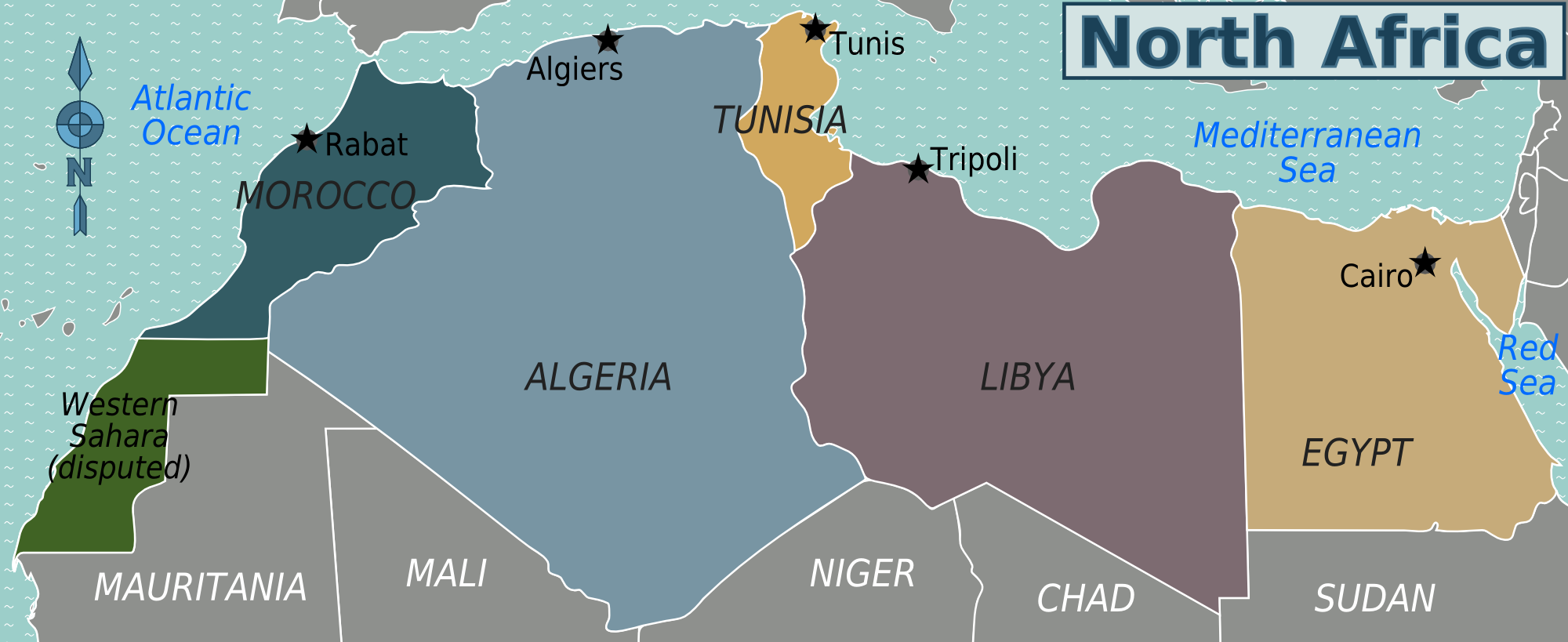The Society for Libyan Studies Annual Lecture:
Always on the Edge? The Spaces of North African History by Prof. James McDougall (University of Oxford)
Mauretania Tingitana was the furthest southwest periphery of the Roman Mediterranean; jazirat al-maghrib was a ‘peninsula’ connecting Egypt to al-Andalus; the Sahara was ‘the second face of the Mediterranean’, with North Africa as a corridor between the seas of water and sand through which successive ‘waves’ of colonisers simply passed. For much of its past, especially as outsiders have seen it, North Africa’s place in the world and in world history has been marginal by definition. Alternatively, seen as an ‘edge’, a ‘junction’, a ‘crossroads’ or a ‘hinge’ – between the Arab world and Africa, Africa and Europe, ‘Europe’ and ‘Islam’ – the Maghrib has been seen as a central articulating point, geopolitically and intellectually situated on the fault-lines of civilisations from the Habsburgs and the Ottomans through to Frontex and Daesh. Thinking through and beyond these tropes, how might a spatial history of North Africa look, and how might it help us see the region as the centre-point of its own past?
CLICK HERE TO REGISTER FOR THIS EVENT
About the speaker:
Professor James McDougall is Professor of Modern and Contemporary History at Trinity College Oxford.
His research addresses several related thematic and geographical fields, mainly in the period since c. 1700: the modern and contemporary Mediterranean; Middle Eastern, African and Islamic history, especially Algeria, Tunisia, and Morocco, but also the history of European imperialism in the Arab world, modern Arab intellectual and political history, and the global history of Islam since c.1700; the French colonial empire in Africa; the Sahara; nationalism and revolutionary movements in Asia and Africa; comparative imperial history; historiography and critical theory.
His research interests are in Mediterranean, Middle Eastern, African, and modern Islamic history, especially modern and contemporary North Africa; and modern France and the French colonial empire (18th-20th cents.). His first work focused on the intersection of Islamic modernism and nationalist politics in colonial Algeria, and he continues to work on colonial and contemporary North African, and especially Algerian, history and politics.
Prof McDougall also has a broader interest in the social, political, and intellectual history of the Arab world, and especially in Arabic/Islamic conceptions of history. He says: “Since 2008, I have been involved in a series of workshops on Arabic historiography, ‘Arabic Pasts’, organised in partnership with colleagues at SOAS and the Aga Khan University-Institute for the Study of Muslim Civilisations, London.”
“My current research is divided between two projects, one on ‘the everyday life of colonialism’ and the aftereffects of empire in France and Africa, and another on the global history of Islam since the eighteenth century. I am also interested in historical methodology, the intersections of history and critical theory, and comparative historiography. I have been involved in several international research networks, on ‘Repression and Control in the Colonial World’ (IHTP, Paris), ‘Reform and the State in the Muslim Mediterranean, 19th-20th centuries’ (IRMC, Tunis), ‘Tradition in the Present’ (KCL), and ‘Reimagining Democracy in the Mediterranean, 1750-1860’ (Oxford).”





